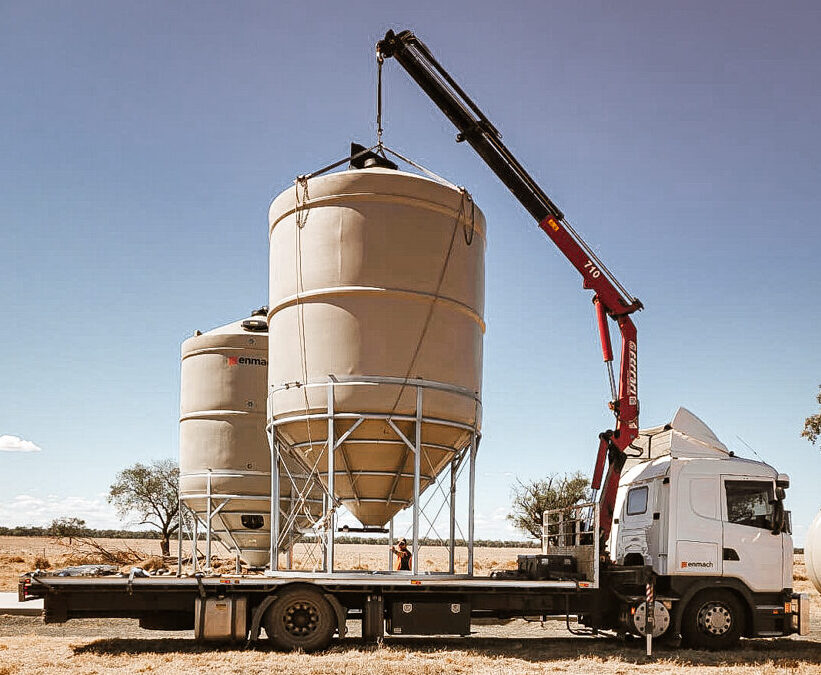When it comes to choosing the right type of silo for your storage needs, the decision often boils down to steel versus polyethylene. While both materials offer their own set of advantages, there’s a clear winner emerging in the realm of modern storage solutions. In this blog post, we’ll explore the ongoing debate between steel and poly silos, emphasising why poly silos are better suited for various applications.
Durability: The Unyielding Strength of Polyethylene
- Poly silos are renowned for their exceptional durability, thanks to the inherent properties of the materials.
- Unlike steel, polyethylene is resistant to corrosion, rust, and chemical degradation, making it ideal for storing a diverse range of materials, including corrosive chemicals, fertilisers, and food products.
- Poly silos also have impact-resistant properties and are resilient to harsh weather conditions, ensuring long-term performance and minimal maintenance requirements.
Versatility: Adapting to Changing Needs
- One of the key advantages of poly silos is their versatility in accommodating various storage requirements and applications.
- Poly silos are available in a wide range of shapes, sizes, and configurations, allowing for customization to meet specific needs and space constraints.
- Poly silos offer unparalleled flexibility and adaptability.
Ease of Installation: Lighter, Faster, Smarter
- Installing steel silos can be a complicated and labor-intensive process due to the weight and complexity of the material.
- In contrast, poly silos are lightweight and easy to handle, significantly reducing installation time and labor costs.
- With their modular design and simple assembly process, poly silos can be installed quickly and efficiently, minimising downtime and maximising productivity.
Hygienic Storage: Keeping Things Clean and Contamination- Free
- Poly silos offer superior hygiene and cleanliness compared to steel silos, making them ideal for storing food-grade and pharmaceutical products.
- The smooth, non-porous surface of polyethylene prevents bacterial growth and contamination, ensuring the integrity and quality of stored materials.
- Poly silos are also easy to clean and sanitise, reducing the risk of cross-contamination and maintaining product purity.
Cost- Effectiveness: Saving Money Without Sacrificing Quality
- While steel silos may have a lower upfront cost, the total cost of ownership over the lifespan of the silo often favors polyethylene.
- Poly silos require minimal maintenance, have a longer service life, and offer greater resistance to corrosion and wear, resulting in lower operating costs and higher ROI in the long run.
- Additionally, the ease of installation and customisation of polyethylene silos can lead to further cost savings in terms of labor and infrastructure.
When it comes to choosing between steel and poly silos, the evidence overwhelmingly points to the superiority of polyethylene in terms of durability, versatility, ease of installation, hygiene, and cost-effectiveness. Whether you’re storing chemicals, food products, agricultural commodities, or any other materials, poly silos offer unmatched performance, reliability, and value for a wide range of applications. By embracing the advantages of poly silos, businesses can future-proof their storage infrastructure and ensure optimal performance in the years to come.
Follow us on Facebook and LinkedIn for the latest news and updates of products.
Related Grain Storage Silos
Related Fertiliser Silos
Related Products Poly Silos
Related Products Silo Tank
Related Products Cone Bottomed Tank

